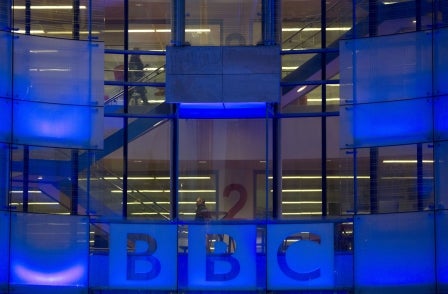
The National Union of Journalists, Unite and broadcasting union BECTU are planning to ballot BBC members for strike action over compulsory redundancies and work conditions.
The news comes after the "overwhelming majority" of the corporation's 4,000 NUJ members went on strike for 24 hours last Monday, resulting in several programme cancellations.
The ballots have been organised because of the BBC’s planned compulsory redundancies as part of its Delivering Quality First scheme. The NUJ estimates the cost-cutting could result in 2,000 job losses overall.
The unions are set to send voting papers out to members on 6 March and the ballot will close two weeks later. The NUJ predicts it could lead to disruption of the Easter television and radio schedule.
BBC NUJ members are currently on a work to rule in protest at compulsory redundancies, 30 of which are currently on the cards.
NUJ general secretary Michelle Stanistreet said:
The NUJ’s recent strike demonstrated the level of concern and anger amongst journalists about the effect of cuts at the BBC.
It was disappointing that the BBC failed to properly negotiate and avert the action, but we’re not prepared to sit back while our members suffer because of short-sighted policies by BBC executives.
We won’t tolerate compulsory redundancies while other vacancies are advertised, and we won’t allow our members’ health to suffer because of unacceptable workloads and avoidable stress.
Our members care because they can see that the quality of journalism will suffer as staff numbers are squeezed.
The inquiry by Dinah Rose and the evidence submitted by the NUJ, has lifted the lid on the huge extent of bullying and harassment within the BBC – this longstanding and entrenched problem has become worse as a result of the cuts under the so-called Delivering Quality First programme.
The solution is simple – we want a six month moratorium on the cuts to allow proper discussions and a resolution to be found without a prolonged period of industrial unrest.
BECTU (the Broadcasting, Entertainment, Cinematograph and Theatre Union) said in a statement that the BBC had rejected talks to address staff concerns yesterday.
Gerry Morrissey, BECTU's General Secretary, said:
We would prefer to have a sensible conversation with BBC management about the damage done in the first year of these cuts, but instead we've had to turn up the pressure to protect thousands of members from over-work, bullying, and stress.
The BBC seems to believe that staff can continue supporting the full range of services despite a 20% reduction in resources, and massive job cuts.
Blame for low morale and insecurity in BBC workplaces rests firmly on the shoulders of managers who signed up to a six-year freeze in the licence fee in 2010.
By committing to maintain levels of output despite a drastic reduction in real funding, they turned the BBC from a world-class broadcaster into Mission Impossible.
Sue Harris, the NUJ’s national organiser for the BBC, said:
The BBC contributes millions to the UK economy. It has a worldwide reputation for its excellent programme making and quality journalism.
The BBC staff who make and produce these programmes are fed up of having to increase productivity year on year, while seeing colleagues being made compulsorily redundant, because the then director general failed to get a decent license fee settlement with the UK government.
This frustration and anger of modestly-paid BBC staff has been heightened by the unnecessarily huge pay-outs given to other departing overpaid senior BBC managers at the end of last year.
Email pged@pressgazette.co.uk to point out mistakes, provide story tips or send in a letter for publication on our "Letters Page" blog
